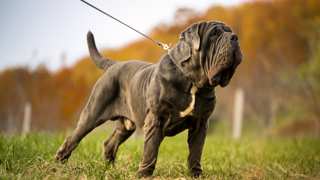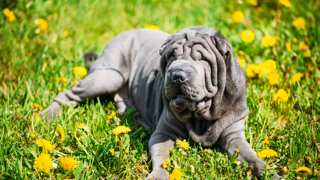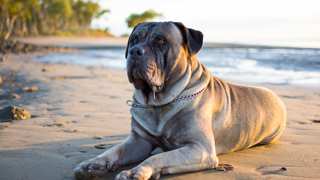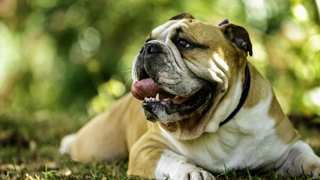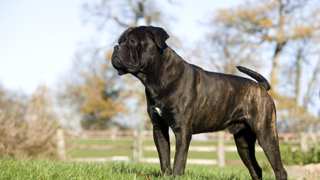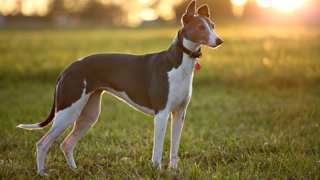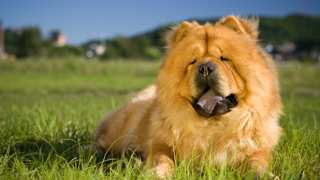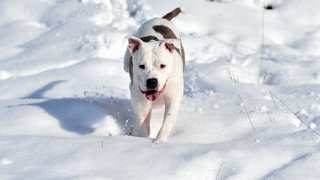The Dogue de Bordeaux is a huge dog with an equally enormous appetite. As with all breeds, these dogs need food that's packed with animal proteins and carbohydrates for energy, plus omega fatty acids for coat and skin health. Some breeders and veterinarians recommend feeding a Dogue de Bordeaux a raw diet of fresh meats, vegetables, eggs, fish, and other protein sources--and while such a diet is great for a DDB, many owners find the raw diet to be too expensive and inconvenient, and choose premium grain-free dry food (particularly the kind made for large breeds) instead. The food will need to be grain-free because many DDBs are highly allergic to wheat and other grains. Owners are urged to not feed their DDBs only cheap, generic dog foods, as these have nowhere nearly enough nutritional ingredients to sustain this large breed for the long term.
Regarding Dogue de Bordeaux food portions: an adult DDB, depending on its age, size, and activity level, will need about five cups of premium dry food per day, divided into two meals. DDB pups, again depending on their age, will need about 3½ cups per day, divided into three meals (not two) until six months old. If you feed your DDB a raw diet: adults will need 2-3% of their body weight in food per day. (A 120-pound DDB, for example, will need about three pounds of raw food daily.) For puppies, the raw food percentage is higher: 5-10% of their weight for the first year.
A quick note about bloat: These large dogs have very deep chests, and are thus highly susceptible to bloat, an often-fatal condition caused by a dog gulping its food when it eats, and the stomach fills with excess air; the condition is most common when a dog eats just before or after exercising. Owners are urged to not feed their DDBs for an hour before or two hours after any proper exercise session to avoid the onset of bloat.
For further details on feeding your DDB from puppyhood through maturity, see the following Dogue de Bordeaux puppy feeding guide (and for simplicity, only dry food portions are listed):
Dogue De Bordeaux Feeding ChartDog AgeDog WeightFood TypeAmountFrequency2 Months12 lbsDry (Puppy formula) 0.5 cups3x/day3 Months25 lbsDry0.75 cups3x/day6 Months60 lbsDry1.2 cups3x/day9 Months80 lbsDry* (Puppy/Adult)2 cups2x/day12 Months100 lbsDry (Adult formula)2.25 cups2x/day15 Months+120 lbsDry2.5 cups2x/day*--Around this time, transition to adult food by first mixing in just a little adult formula with the puppy formula. Over the course of a week, with each meal add a bit more adult food to the mixture, until the dog is eating it entirely.
Try if possible to stick to the above-listed portions. A Dogue de Bordeaux will easily become obese if regularly overfed, which will cause major joint, breathing, and digestive issues; worst of all, this breed already has a short lifespan of 7-9 years--and a fat DDB will probably live even fewer years than that. You can control your DDB's weight by having regular feeding and exercise schedules, by not feeding the dog table scraps, and by not leaving food in its bowl all the time, thereby allowing the dog to eat anytime it wants. It's better to put your DDB's bowl down only at mealtimes, then pick it up 20-30 minutes after the dog begins eating.
If you're worried your DDB is overweight, give the dog this simple test: run a hand along its side, and if you can't feel any ribs, it's diet time. Reduce the dog's daily food consumption by one-fourth, and add an extra walk or play period to its daily exercise schedule.

